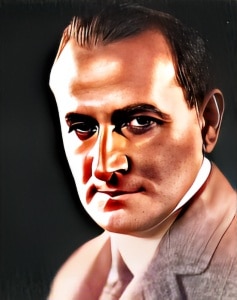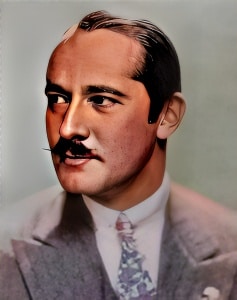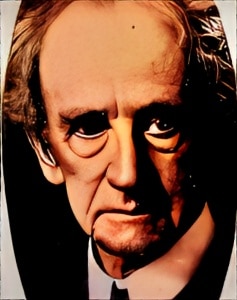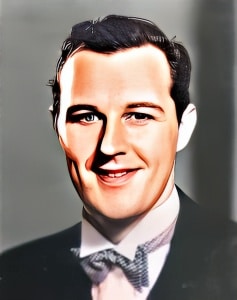 Sam De Grasse (1875-1953) was a Canadian-born actor who made significant contributions to the early years of American cinema.
Sam De Grasse (1875-1953) was a Canadian-born actor who made significant contributions to the early years of American cinema.
Known for his distinctive appearance and versatile acting abilities, De Grasse’s career spanned both silent and sound films, leaving a lasting legacy in the world of entertainment.
Born on June 12, 1875, in Bathurst, New Brunswick, Canada, Sam De Grasse began his career on the stage before transitioning to silent films. He made his screen debut in the early 1910s, entering the burgeoning film industry at a time when it was rapidly evolving.
One of the notable aspects of De Grasse’s career was his distinctive appearance. He often portrayed characters with a bald head and a beard, which became his signature look and contributed to his recognizability on screen. This distinctive appearance allowed him to take on various roles, from authoritative figures to villains and complex characters.
De Grasse’s versatile acting abilities led to collaborations with renowned directors and actors of his time. He worked with influential filmmaker D.W. Griffith, appearing in several of Griffith’s films, including “ Intolerance” (1916), an epic project that explored themes of prejudice and injustice throughout different historical eras. De Grasse’s performances in “ Intolerance” were integral to the film’s impact, showcasing his ability to adapt to a variety of roles.
In Griffith’s “ The Birth of a Nation” (1915), another groundbreaking film in terms of cinematic techniques, De Grasse played the character Dr. Cameron. While the film has faced criticism for its racist content, De Grasse’s acting talent cannot be denied, and he played a crucial part in the film’s narrative.
As the silent film era transitioned into the sound era, Sam De Grasse faced the challenges of adapting to the evolving industry. He continued to act in both films and theater, displaying his versatility as an actor in different mediums.
De Grasse’s personal life and off-screen activities remain relatively private, with limited information available. His focus on his career as an actor in the early years of cinema is the central element of his legacy.
Sam De Grasse continued to work in the industry well into the sound era and passed away on November 29, 1953, in Pacific Palisades, California. His contributions to the silent and early sound film era continue to be celebrated and appreciated for their role in shaping the early years of American cinema. His distinctive appearance and versatile performances, both on screen and on stage, are considered essential in the history of American film and theater, serving as a testament to the evolving art of storytelling through the medium of film.
Loading live eBay listings...




